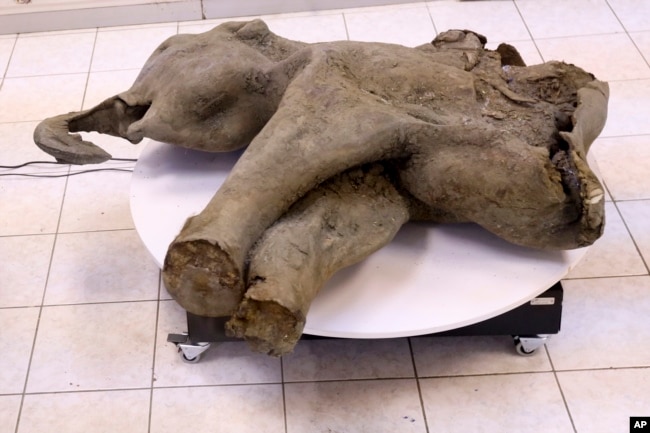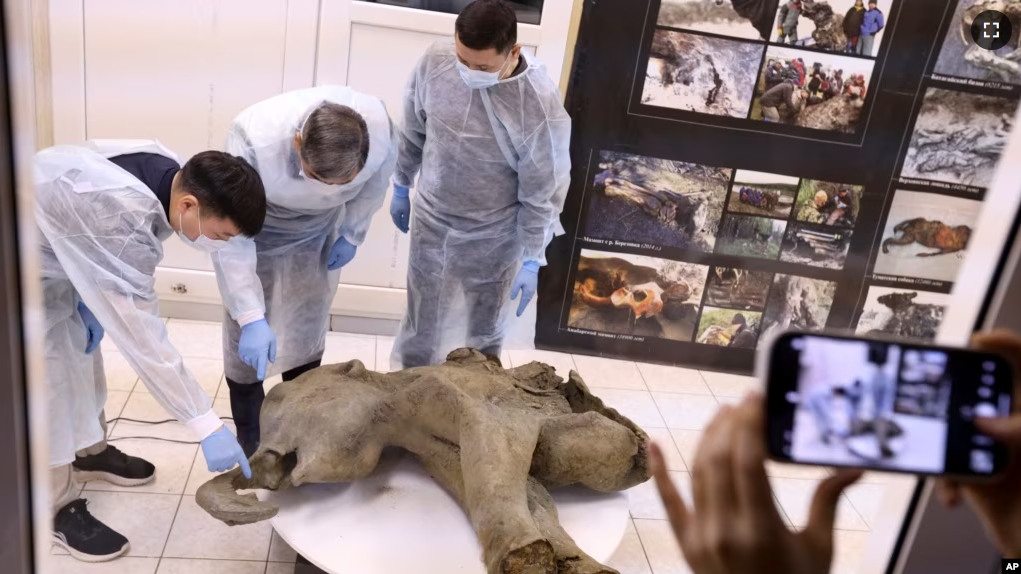Researchers in Russia’s Siberia area are showing the public what they say are the 50,000-year-old remains of a baby mammoth.
Melting permafrost led to the animal’s discovery. They are calling it the best-preserved mammoth body ever found.
Named Yana by the scientists, the female mammoth weighs more than 100 kilograms and is 120 centimeters tall.
Scientists believe that Yana was one year old when she died. Her remains are among several mammoth carcasses that have been recovered.

Yana was found among the melting permafrost at Batagaika crater in the far-eastern Russian area of Yakutia. Known as the “gateway to the underworld,” scientists have found remains of other ancient animals there, including bison, horses and dogs.
Permafrost is soil that remains frozen for a period of years or more. As the permafrost in Siberia melts, discoveries of prehistoric animals are becoming more common.
Scientists at Russia’s North-Eastern Federal University will study Yana’s remains. The university has a research center and museum specifically for mammoths.
Scientists at the university described the find as “exceptional.” They said Yana would give researchers additional information about how mammoths lived and how they changed to survive in their surroundings.
I’m Anna Matteo.
The Associated Press reported this story. Anna Matteo adapted it for VOA Learning English.
_________________________________________
Words in This Story
permafrost –n. soil that remains frozen for a period of years or longer without melting
preserved –adj. kept in good condition; relatively unchanged by conditions such as age, wear or weather
carcass –n. the remains of a dead animal
crater –n. a circular hole in the earth with a steep edge and curving bottom that is often caused by a meteor strike or volcanic activity
exceptional –adj. something that is unlike others; remarkable or surprising
